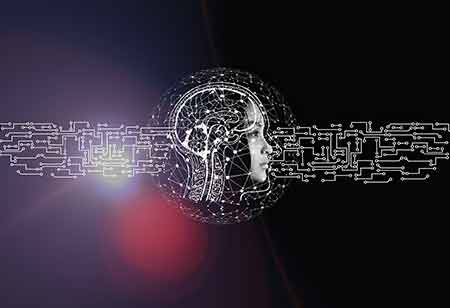THANK YOU FOR SUBSCRIBING
Be first to read the latest tech news, Industry Leader's Insights, and CIO interviews of medium and large enterprises exclusively from Education Technology Insights
What is the difference between handwritten and typed notes?

By
Education Technology Insights | Tuesday, July 05, 2022
Stay ahead of the industry with exclusive feature stories on the top companies, expert insights and the latest news delivered straight to your inbox. Subscribe today.
Handwritten notes engage more of the senses and, therefore, more of the brain than typed notes. Then it wouldn’t make sense to exercise more of your brain than less.
Fremont, CA: Most students know they have to take notes. It’s like the “go-to” for study skills.
If you want to remember something, you must write it down. If I have something to do but didn’t write it down, it’s a coin flip whether or not I’ll remember it (and even then, it may not be until 11:30 at night). Hence I write everything I need to get done on my whiteboard. My wife dislikes it because it’s somewhat messy. But, on the other hand, I have loved it since I can remember I’m doing.
Writing boosts memory. That’s just the way it goes.
In recent years, nevertheless, tech has created a new question:
Do digital notes have an equal effect as handwritten notes?
It’s a great question that I’m not competent to answer. I’ve often thought handwritten notes work better for me.
But fortunately for us, the cognitive psychologists of the world have completed a study on handwritten notes for students.
The Handwritten Notes vs. Digital Notes Study
The researchers equated two groups of volunteers; both were asked to learn an unfamiliar alphabet. The first group used the old pen and paper method (handwritten notes). The second group used a keyboard.
Outcomes were calculated each week, which helped them determine the final result: handwritten notes get the upper hand.
Hence, as per this study, students who take handwritten notes with pen&paper learn better than those using a keyboard.
Why handwritten notes are better for you
Handwritten notes occupy more of the senses. Therefore, the brain is more active, enhancing the learning process. This is part of an area of study called “haptics.” Researchers in this arena study how our minds and bodies interact in learning.
It’s the “tactile” or “kinesthetic” learning idea. For example, the more physically active you take handwritten notes, the more possible you are to remember information well.
So, educational and physical exercise are not as different as you think. Like the body, the brain needs to be worked and stretched to grow and strengthen. When the saying, “No pain, no gain,” is over-used strongly, it is devalued in the academic world. If handwritten notes do engage more of the senses and, therefore, more of the brain than typed notes, then wouldn’t it make sense to exercise more of your brain than less?
Also, there are a lot of opportunities for you to write your notes by hand. But, whether reading a textbook for class or listening to a lecture, you need an effective approach. Else, you are doing what we call “wasting time.”
Why do students not use handwritten notes more often?
This is a great question. Digital notes are more helpful in 3 main ways, which often (probably to the detriment of students) encourage students to replace handwritten notes with digital.
1. Convenience
While convenience is nice, it possibly shouldn’t replace effectiveness. Laptops give a quick and easy way to record information and save it. They also eradicate the hassle of keeping notebook paper organized and safe—it’s much harder to lose a laptop than a notebook, in my experience. (Not impossible, but harder)
2. Legibility
Maybe this isn’t a problem for you. It is for me. My handwritten notes are sometimes so bad I can’t even read them. That’s why we encourage taking digital notes – but not while in class. Record and clean up your messages after the fact, but do your best to take handwritten notes when in class.
3. Share-ability
It’s far simpler to share your notes with someone else when they’re in a digital format. Remember that taking notes is far more effective than reading a classmate’s notes.







